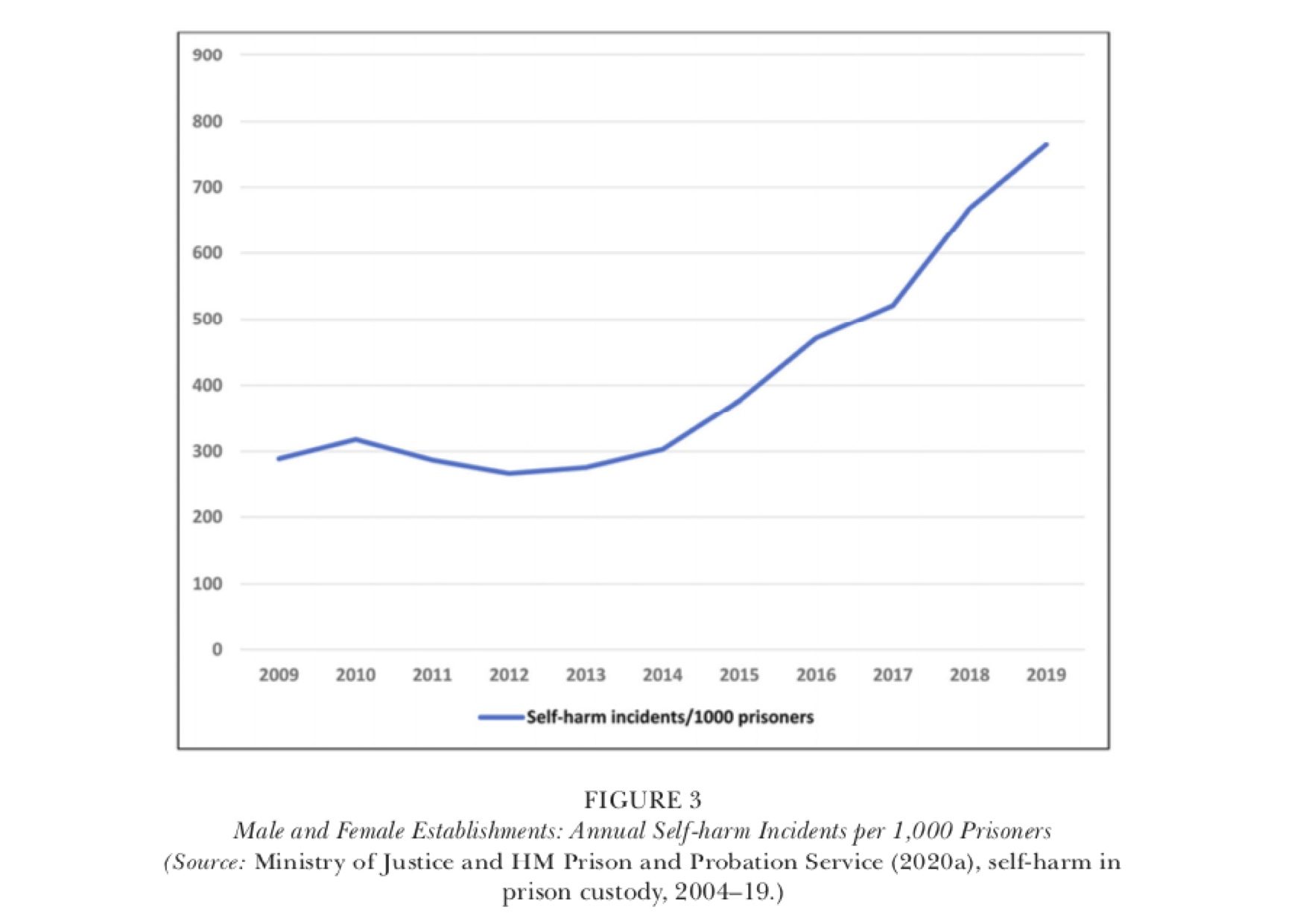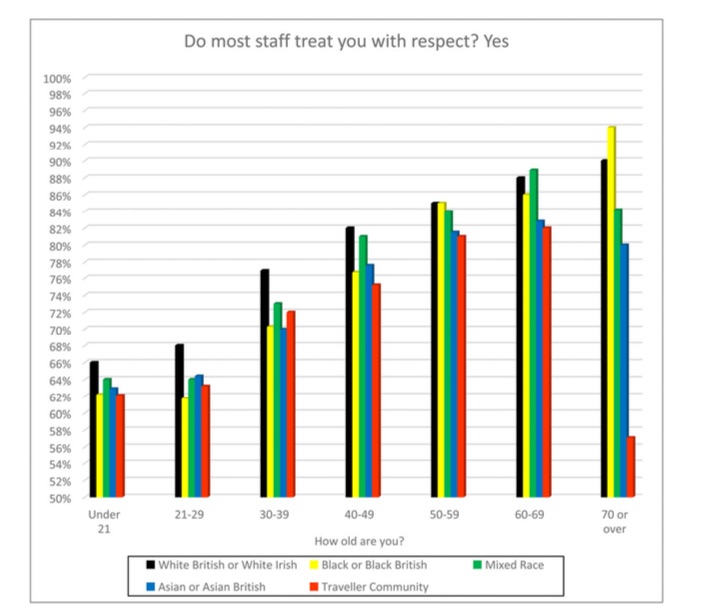Only six out of 10 black prisoners aged under 30 years of age felt they were being treated with respect by prison staff compared to more than nine out of 10 for those aged 70 years or over, according to a new study that finds Black, Asian and Minority Ethnic prisoners were less likely than white to report that they were treated with respect and younger prisoners were less likely than older. The research undertaken by Anthony Quinn, Nick Hardwick and Rose Meek from Royal Holloway (published in the Howard Journal) draws on more than 60,000 prisoner surveys conducted between 2010 and 2019 collected by HM Inspectorate of Prisons (HMIP). The inspectorate’s prison survey features the question ‘Do most staff here treat you with respect?’
The authors described as ‘striking’ that only just over six out of 10 black prisoners aged 21 to 29 years (62%) stated that staff treated them with respect; compared to more than nine out of 10 for prisoners aged 70 years or over (94%). Only 62% of those from a Traveller community under 21 years of age reported that staff treated them with respect compared to 82% in the 60–69 age group.
 According to the study, the research period (2010 to 2019) took place ‘against a backdrop of turbulence’ in the prison service which represented ‘a significant deterioration’ in the prisoners’ conditions leading to the House of Commons’ justice committee calling it an ‘enduring crisis’. Self-harm incidents per 1,000 prisoners rose by 164% from 289 in 2009 to 764 in 2019. Over the same period there were ‘sharp falls’ in prison staff levels particularly among those with experience. The authors also identify changes to prison policies and procedures including the Incentives and Earned Privileges Scheme in 2013 which restricted access to privileges as eroding staff-prisoner relationships.
According to the study, the research period (2010 to 2019) took place ‘against a backdrop of turbulence’ in the prison service which represented ‘a significant deterioration’ in the prisoners’ conditions leading to the House of Commons’ justice committee calling it an ‘enduring crisis’. Self-harm incidents per 1,000 prisoners rose by 164% from 289 in 2009 to 764 in 2019. Over the same period there were ‘sharp falls’ in prison staff levels particularly among those with experience. The authors also identify changes to prison policies and procedures including the Incentives and Earned Privileges Scheme in 2013 which restricted access to privileges as eroding staff-prisoner relationships.
‘Overall, higher percentages of older prisoners reported that most staff treat them with respect,’ the authors said. ‘The smallest percentages of staff respect were identified among young adults under the age of 21 years and the highest percentages were within the 60 years or over age cohort.’ They continued to note white prisoners were ‘more likely to report that most staff treat them with respect, than were BAME prisoners’. The authors stressed that their main conclusion was that to make generalisations about the experience of prisoners based on broad categories of age or ethnicity ‘overlooks significant variation within these groups’.
The new study contextualises its findings and notes, for example, that the 2017 Lammy Review highlighted that BAME prisoners were less likely than white prisoners to report positive relationships with prison staff in a context where BAME prisoners formed a disproportionate part of the prison population (‘comprising 25% of prisoners although constituting only 14% of the population as a whole’).
The study also looks at the twin issues of an ageing prison population and that prison sentences are becoming longer. A 2014 HM Inspectorate of Prisons report on older prisoners was titled ‘No Problems – Old and Quiet’. ’Older prisoners are relatively compliant,’ stated a 2018 HMIP report. ‘In an increasingly pressurised prison system, their needs are therefore likely to be overlooked unless there is specific provision – yet the issues they pose are likely to become more acute, as an increasing number of long-sentenced prisoners grow old and frail in prison.’ By contrast, the 2015 Harris Review into self-inflicted deaths in custody of 18- to 24-year-olds underlined the importance of staff prisoner relationships but found that they were ‘mixed and often poor’ in young offender institutions.







